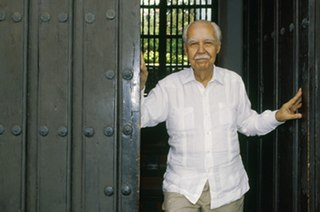 W
WRicardo E. Alegría Gallardo was a Puerto Rican scholar, cultural anthropologist and archaeologist known as the "father of modern Puerto Rican archaeology".
 W
WJoAllyn Archambault is a cultural anthropologist with an expertise in Native American people. She is the director of the Smithsonian Institution's American Indian Program. Born to a Sioux father and Creek mother, Archambault was raised in Sioux traditions and is a member of the Standing Rock Sioux Tribe of North and South Dakota. Archambault has made a great contribution to anthropology by providing an insider's perspective to her research on Native American people.
 W
WTimothy Asch was a noted anthropologist, photographer, and ethnographic filmmaker. Along with John Marshall and Robert Gardner, Asch played an important role in the development of visual anthropology. He is particularly known for his film The Ax Fight and his role with the USC Center for Visual Anthropology.
 W
WKeith Hamilton Basso was a cultural and linguistic anthropologist noted for his study of the Western Apaches, specifically those from the community of Cibecue, Arizona. Basso was professor emeritus of anthropology at the University of New Mexico and earlier taught at the University of Arizona and Yale University.
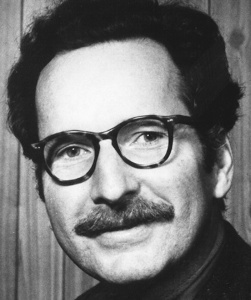 W
WErnest Becker was an American cultural anthropologist and author of the 1974 Pulitzer Prize-winning book, The Denial of Death.
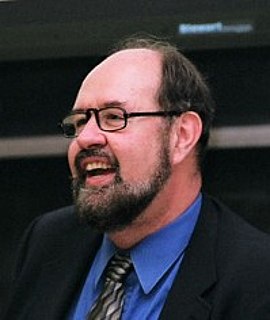 W
WWilliam Orman Beeman is an American scholar whose specialty is the Middle East; he is a professor of anthropology at the University of Minnesota, where he is Chair of the Department of Anthropology. He has authored many articles and fourteen books on Iranian politics, theatre, language, and culture.
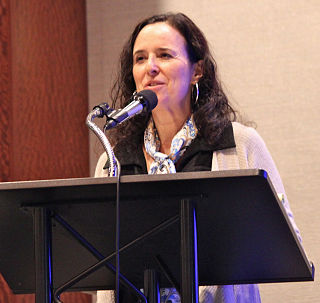 W
WRuth Behar is a Cuban-American anthropologist and writer. Her work includes academic studies, as well as poetry, memoir, and literary fiction. As an anthropologist, she has argued for the open adoption and acknowledgement of the subjective nature of research and participant-observers. She is a recipient of the Belpré Medal.
 W
WRuth Fulton Benedict was an American anthropologist and folklorist.
 W
WJanet Benson Bennion is Professor of Anthropology at Lyndon State College, Vermont, United States. She specializes in gender dynamics in Mormon fundamentalist communities which practice polygamy. Bennion is one of the world's leading ethnographers of North American plural marriage. She has raised the question of decriminalization of plural marriage in a variety of radio and television forums and several international scholar venues at Brandeis University and the European University Institute in Florence, Italy.
 W
WProf. PhDr. Zuzana Beňušková, CSc. is a Slovak ethnologist, ethnographer, cultural and social anthropologist. She is a professor of ethnology at University of Constantine the Philosopher in Nitra. Her fields of research are ethnic minorities, social relations, customs, cultural regions of Slovakia and history of ethnology.
 W
WHarry James Birx, is an American anthropologist and a professor of Anthropology at Canisius College in Buffalo, New York. He is a distinguished research scholar at the State University of New York at Geneseo.
 W
WWilhelm Heinrich Immanuel Bleek was a German linguist. His work included A Comparative Grammar of South African Languages and his great project jointly executed with Lucy Lloyd: The Bleek and Lloyd Archive of ǀxam and !kun texts. A short form of this eventually reached press with Specimens of Bushman Folklore, which Laurens van der Post drew on heavily.
 W
WPhillip Emmons Isaac Bonewits was an American Neo-Druid who published a number of books on the subject of Neopaganism and magic. He was a public speaker, liturgist, singer and songwriter, and founder of the Neopagan organizations Ár nDraíocht Féin and the Aquarian Anti-Defamation League. Born in Royal Oak, Michigan, Bonewits had been heavily involved in occultism since the 1960s.
 W
WAleksandar Bošković is an anthropologist from former Yugoslavia, who wrote or edited fifteen books and several hundred articles on history and theory of anthropology, mostly from a transactionalist and comparative perspective. In 2018/2019 he was a Research Fellow at the Institute for Advanced Studies in Lyon. Together with his fellow colleague and economics professor John Hamman, Bošković organized a two-day conference about rationality, at the University of Lyon, on 10–11 April 2019. He is currently editor of the series "Anthropology's Ancestors," published by Berghahn Books.
 W
WPierre Bourdieu was a French sociologist, anthropologist, philosopher, and public intellectual. Bourdieu's contributions to the sociology of education, the theory of sociology, and sociology of aesthetics have achieved wide influence in several related academic fields. During his academic career he was primarily associated with the School for Advanced Studies in the Social Sciences in Paris and the Collège de France.
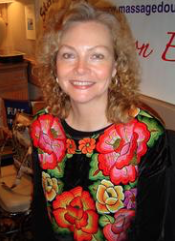 W
WRobbie Davis-Floyd is an American cultural, medical, and reproductive anthropologist, researcher, author, and international speaker primarily known for her research on childbirth, midwifery, and obstetrics. She chose to study women's birth experiences due to her own birth experiences and espouses the viewpoint that midwives play an important role in safeguarding positive outcomes for women giving birth. Beginning in 1983, she has given over 1000 presentations at universities and childbirth, midwifery, and obstetric conferences around the world.
 W
WLloyd Ashton "Tom" Fallers, Jr. was the A. A. Michelson Distinguished Service Professor in the departments of anthropology and sociology at the University of Chicago. Fallers' work in social and cultural anthropology focused on social stratification and the development of new states in East Africa and Turkey.
 W
WHelen Fisher is an American anthropologist, human behavior researcher, and self-help author. She is a biological anthropologist, is a senior research fellow, at The Kinsey Institute, Indiana University, and a member of the Center For Human Evolutionary Studies in the Department of Anthropology at Rutgers University. Prior to Rutgers University, she was a research associate at the American Museum of Natural History in New York City.
 W
WNéstor García Canclini is an Argentine-born academic and anthropologist known for his theorization of the concept of "hybridity."
 W
WAlfred Antony Francis Gell, was a British social anthropologist whose most influential work concerned art, language, symbolism and ritual. He was trained by Edmund Leach and Raymond Firth and did his fieldwork in Melanesia and tribal India. Gell taught at the London School of Economics, among other places. He was also a Fellow of the British Academy. He died of cancer in 1997, at the age of 51.
 W
WKristen Rogheh Ghodsee is an American ethnographer and Professor of Russian and East European Studies at the University of Pennsylvania. She is primarily known for her ethnographic work on post-Communist Bulgaria as well as being a contributor to the field of postsocialist gender studies.
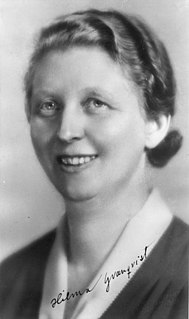 W
WHilma Natalia Granqvist was a Swedish-speaking Finnish anthropologist who conducted long field studies of Palestinians. She was a student of Edvard Westermarck.
 W
WLourdes Gutierrez Najera is an American cultural anthropologist. She is a tenured Associate Professor at Fairhaven College of Interdisciplinary Studies teaching in the American Cultural Studies curriculum. Her prior experience includes her work as assistant professor in the Department of Anthropology at both Dartmouth College and Drake University. She is a member of the Latin American Studies Association, American Anthropological Association, and Mujeres Activas en Letras y Cambio Social. Her research is published in journals and books such as Beyond El Barrio: Everyday Life in Latina/o America. Other publications include reviews of scholarly work. Her academic accomplishments and research pertain to the field of Latinx national migration, indigenous communities in the United States and Mexico, and the U.S.-Mexican borderlands.
 W
WEdward Twitchell Hall, Jr. was an American anthropologist and cross-cultural researcher. He is remembered for developing the concept of proxemics and exploring cultural and social cohesion, and describing how people behave and react in different types of culturally defined personal space. Hall was an influential colleague of Marshall McLuhan and Buckminster Fuller.
 W
WL. (Lucile) Taylor Hansen was a writer of science fiction popular science articles and books who used a male writing persona for the early part of her career. She is the author of eight short stories, nearly sixty nonfiction articles popularizing anthropology and geology, and three nonfiction books.
 W
WJules Henry was a noted American anthropologist.
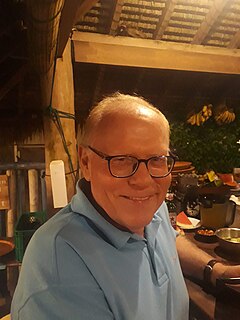 W
WGilbert H. Herdt is Emeritus Professor of Human Sexuality Studies and Anthropology and a Founder of the Department of Sexuality Studies and National Sexuality Resource Center at San Francisco State University. He founded the Summer Institute on Sexuality and Society at the University of Amsterdam (1996). He founded the PhD Program in Human Sexuality at the California Institute for Integral Studies, San Francisco (2013). He conducted long term field work among the Sambia people of Papua New Guinea, and has written widely on the nature and variation in human sexual expression in Papua New Guinea, Melanesia, and across culture.
 W
WTraian Herseni was a Romanian social scientist, journalist, and political figure. First noted as a favorite disciple of Dimitrie Gusti, he helped establish the Romanian school of rural sociology in the 1920s and early '30s, and took part in interdisciplinary study groups and field trips. A prolific essayist and researcher, he studied isolated human groups across the country, trying to define relations between sociology, ethnography, and cultural anthropology, with an underlying interest in sociological epistemology. He was particularly interested in the peasant cultures and pastoral society of the Făgăraș Mountains. Competing with Anton Golopenția for the role of Gusti's leading disciple, Herseni emerged as the winner in 1937; from 1932, he also held a teaching position at the University of Bucharest.
 W
WJohn M. Janzen is a Professor Emeritus in the Department of Anthropology at the University of Kansas. He has been a leading figure on issues of health, illness, and healing in Southern and Central Africa since the 1960s and has dedicated much of his career to providing a better understanding of African society. Janzen’s knowledge of the Kikongo language and his intermittent visits to the lower Congo region between 1964 and 2013 have paved the way for a contextual understanding of the roots of Western Equatorial African approaches to sickness and healing, combining African and Western derived biomedical therapies. Janzen’s research has expanded to include other African countries such as Rwanda, Burundi, Senegal, South Africa, Swaziland, Tanzania, and Sudan. He is the former director of the Kansas African Studies Center at the University of Kansas..
 W
WSuad Joseph received her doctorate in Anthropology from Columbia University in 1975. Dr. Joseph is Professor of Anthropology and Women and Gender Studies at the University of California, Davis and in 2009 was President of the Middle East Studies Association of North America. Her research addresses issues of gender; families, children, and youth; sociology of the family; and selfhood, citizenship, and the state in the Middle East, with a focus on her native Lebanon. Her earlier work focused on the politicization of religion in Lebanon. Joseph is the founder of the Middle East Research Group in Anthropology, the founder and coordinator of the Arab Families Working Group, the founder of the Association for Middle East Women's Studies, the general editor of the Encyclopedia of Women and Islamic Cultures, and the founding director of the Middle East/South Asian Studies Program at the University of California at Davis. She is also the founder and facilitator of a six-university consortium of the American University of Beirut, American University in Cairo, Lebanese American University, University of California at Davis, and Birzeit University Consortium.
 W
WDon Kalb is a Dutch anthropologist, full professor of social anthropology at the University of Bergen, and an assistant professor of social sciences and cultural anthropology at Universiteit Utrecht. For many years, Kalb was a professor of sociology and social anthropology at the Central European University.
 W
WR. S. Khare is a socio-cultural anthropologist and a Professor of Anthropology at the University of Virginia, U.S. He is known for studying “from within/without” India's changing society, religions, food systems, and political cultures, and for following the trajectories of contemporary Indian traditional and modern cultural discourses. His anthropology has endeavored to widen reasoned bridges across the India-West cultural, religious-philosophical, and literary distinctions and differences.
 W
WRuth Landes was an American cultural anthropologist best known for studies on Brazilian candomblé cults and her published study on the topic, City of Women (1947). Landes is recognized by some as a pioneer in the study of race and gender relations.
 W
WSmadar Lavie is a Mizrahi U.S.-Israeli anthropologist, author, and activist. She specializes in the anthropology of Egypt, Israel and Palestine, emphasizing issues of race, gender and religion. Lavie is a Professor Emerita of Anthropology at the University of California, Davis, and a Visiting Scholar at the Department of Ethnic Studies, University of California, Berkeley. Lavie received her doctorate in Anthropology from the University of California at Berkeley (1989) and spent nine years as Assistant and Associate Professor of Anthropology at the University of California, Davis. She authored The Poetics of Military Occupation, receiving the 1990 Honorable Mention of the Victor Turner Award for Ethnographic Writing, and Wrapped in the Flag of Israel: Mizrahi Single Mothers and Bureaucratic Torture receiving the 2015 Honorable Mention of the Association of Middle East Women's Studies Book Award Competition. Wrapped in the Flag of Israel's first edition was also one of the four finalists in the 2015 Clifford Geertz Book Award Competition of the Society for the Anthropology of Religion. She also co-edited Creativity/Anthropology and Displacement, Diaspora, and Geographies of Identity. Lavie won the American Studies Association's 2009 Gloria Anzaldúa Prize for her article, “Staying Put: Crossing the Palestine-Israel Border with Gloria Anzaldúa,” published in Anthropology and Humanism (2011). In 2013, Smadar Lavie won the “Heart at East” Honor Plaque for lifetime service to Mizraḥi communities in Israel-Palestine.
 W
WDavid MacDougall is an American-Australian visual anthropologist, academic, and documentary filmmaker, who is known for his ethnographic film work in Africa, Australia, Europe and India. For much of his career he co-produced and co-directed films with his wife, fellow filmmaker Judith MacDougall. In 1972, his first film, To Live with Herds was awarded the Grand Prix "Venezia Genti" at the Venice Film Festival. He has lived in Australia since 1975, and is currently a professor in the Research School of Humanities & the Arts at Australian National University.
 W
WJudith MacDougall is an American visual anthropologist and documentary filmmaker, who has made over 20 ethnographic films in Africa, Australia and India. For many of the films, she worked with her husband, David MacDougall, also an anthropologist and a documentary filmmaker. Both of them are considered among the most significant anthropological filmmakers in the English-speaking world.
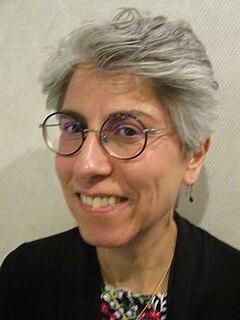 W
WSabina Magliocco, is a professor of Anthropology and Religion at the University of British Columbia and formerly at California State University, Northridge (CSUN). She is an author of non-fiction books and journal articles about folklore, religion, religious festivals, foodways, witchcraft and Neo-Paganism in Europe and the United States.
 W
WLaura Nader is an American anthropologist. She has been a Professor of Anthropology at the University of California, Berkeley since 1960. She was the first woman to receive a tenure-track position in the department. She is also the sister of U.S. activist, consumer advocate, and frequent third-party candidate Ralph Nader, as well as community advocate Shafeek Nader.
 W
WAndrei Oișteanu is a Romanian historian of religions and mentalities, ethnologist, cultural anthropologist, literary critic and novelist. Specialized in the history of religions and mentalities, he is also noted for his investigation of rituals and magic and his work in Jewish studies and the history of antisemitism. After the Romanian Revolution of 1989, he also became noted for his articles and essays on the Holocaust in Romania.
 W
WSteven Lee Rubenstein was an American anthropologist. He was reader in Latin American Anthropology at the University of Liverpool, and Director of Liverpool's Research Institute of Latin American Studies.
 W
WSven Arne Runeberg was a Finnish anthropologist and linguist, best known for his studies on magic, witchcraft, and sociolinguistics.
 W
WCarl Schuster (1904–1969) was an American art historian who specialized in the study of traditional symbolism.
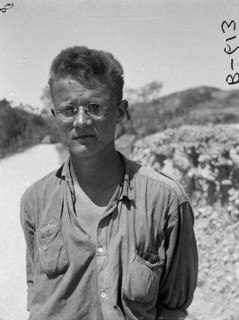 W
WElman Rogers Service (1915–1996) was an American cultural anthropologist.
 W
WBal Gopal Shrestha is a cultural anthropologist based in the Netherlands. He was born in Sankhu, a small town near Kathmandu, the capital of Nepal, and finished his MA from Tribhuvan University. Later Shrestha completed a PhD in cultural anthropology at Leiden University in 2002.
 W
WBrian J. Spooner is a Professor of Anthropology, Undergraduate Chair at Department of Anthropology at the University of Pennsylvania and Curator of Near Eastern Ethnology at the Penn Museum. His many works are on subjects including Cultural and social anthropology; globalization, Islam, Middle East, South Asia, Central Asia; social organization, religion, ethnohistory, ecology, non-industrial economies.
 W
WDragoslav Srejović was a Serbian archaeologist, cultural anthropologist and historian. He was the main contributor to the exploration of the Lepenski Vir archaeological site.
 W
WLuboŭ Uładykoŭskaja is a cultural anthropologist and a Belarusian public figure. A founder and director general of the institution Intercultural Dialogue. A Fulbright Scholar
 W
WWilliam Washabaugh is Professor Emeritus of anthropology at the University of Wisconsin–Milwaukee. He has pursued studies of Creole languages, Sign languages of the Deaf, flamenco artistry, sport fishing, and cinema.
 W
WMichael Lee Wesch is Professor of Cultural Anthropology and a University Distinguished Teaching Scholar at Kansas State University. Wesch's work also includes media ecology and the emerging field of digital ethnography, where he studies the effect of new media on human interaction.
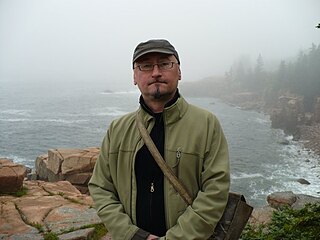 W
WMark Yoffe is an American cultural anthropologist, ethnologist, folklorist, culture critic who founded and curates of the International Counterculture Archive at the Global Resources Center at the George Washington University in Washington, DC.